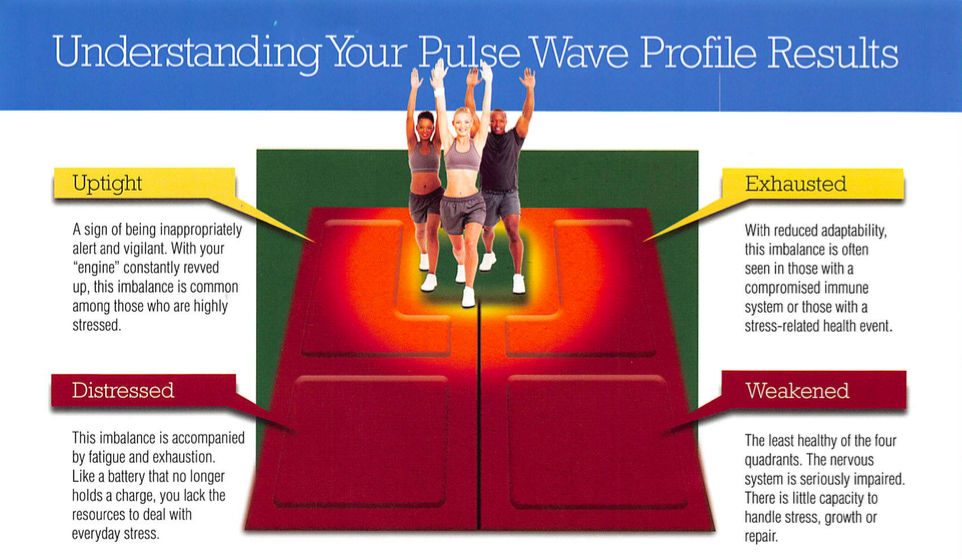The pulse wave profiler helps the doctor to determine your overall ability to adapt to the environment. It does this by looking at the timing of your pulse, and determining the balance and tension within your nervous system. This exam is known as heart rate variability.
Stressful lifestyle habits including poor dietary choices, limited exercise, and constant emotional aggravation can cause the body to be caught in the ‘fight-flight’ response. This can lead to exhaustion and a draining of a person’s reserves.
A score within the green box on the graph is associated with better adaptability and relates to a healthy lifestyle. Low heart rate variability is associated with accelerated aging and poor heart health.
As a part of the insight™ stress analysis system, the Pulse Wave Profiler (PWP) helps chiropractors assess and monitor the impact of stress on patients through Heart Rate Variability (HRV) readings.
What is HRV and how does it affect well-being?
HRV refers to the beat-to-beat variability of the heart, and provides incredible insight into autonomic nervous system function. Though it may seem counterintuitive, a higher HRV is actually a good thing! It means that there is a greater variability in the time between heart beats. The more adaptable a patient’s heart, the less damage any stress-related spikes will be for overall health and well-being. With the PWP, chiropractors can establish a baseline HRV for each patient. This provides a concrete starting point to track a patient’s progress as they work toward wellness.

Remember, through the month of March ONLY we are offering FREE nerve scans! Find out what your health grade is and how chiropractic can help you in your journey to better health and wellness.


 She’s a Mom, has Doctorate in Chiropractic and loves helping people move from pain back to a healthy and active lifestyle.
She’s a Mom, has Doctorate in Chiropractic and loves helping people move from pain back to a healthy and active lifestyle.